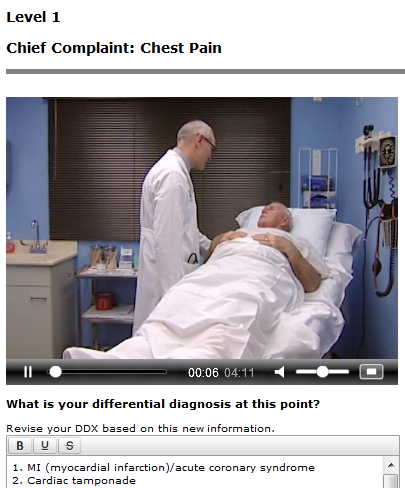Background and Theory
In 2015, Dr. Debra L. Klamen proposed an entirely new model for third-year clerkships in response to the many calls for improvement in the education of medical students (1). The envisioned clerkship leaned heavily on the theory of deliberate practice (2). The definition of deliberate practice is “a special type of practice that is purposeful and systematic. Deliberate practice requires focused attention and is conducted with the specific goal of improving performance.” The new model w as created to address some of the deficiencies that were found from research into the clinical year, including that clinical reasoning ability was not increasing at the rate expected. (3-6) Emil Petrusa noted, “Near random clinical experiences of students do not provide consistent, repeated practice with important clinical cases to achieve minimally adequate performance on these objective performance examinations, leading to scoring ‘psychogymnastics’ to titrate fail rates.” (7) Students in clinical clerkships are certainly learning, but what they are learning is idiosyncratic and opportunistic; there is no way to tell which students saw what. What SIUSOM sought to do was create longitudinal opportunities for practice outside the clerkship, beginning in Year 1, which would allow students to get the deliberate practice they need. The result includes the online, video-based Critical Clinical Competencies (CCC) curriculum materials seen here.
as created to address some of the deficiencies that were found from research into the clinical year, including that clinical reasoning ability was not increasing at the rate expected. (3-6) Emil Petrusa noted, “Near random clinical experiences of students do not provide consistent, repeated practice with important clinical cases to achieve minimally adequate performance on these objective performance examinations, leading to scoring ‘psychogymnastics’ to titrate fail rates.” (7) Students in clinical clerkships are certainly learning, but what they are learning is idiosyncratic and opportunistic; there is no way to tell which students saw what. What SIUSOM sought to do was create longitudinal opportunities for practice outside the clerkship, beginning in Year 1, which would allow students to get the deliberate practice they need. The result includes the online, video-based Critical Clinical Competencies (CCC) curriculum materials seen here.
-
Klamen DL. Getting Real: Embracing the Conditions of the Third-Year Clerkship and Reimagining the Curriculum to Enable Deliberate Practice. Acad Med. 2015; 90(10):1314-1317.
-
Ericsson KA, Krampe RT, Tesch-Romer C. The role of deliberate practice in the acquisition of expert performance. Psychol Rev. 1993;100:363–406.
-
Williams RG, Klamen DL. Examining the diagnostic justification abilities of fourth-year medical students. Acad Med. 2012;87:1008.
-
Williams RG, Klamen DL, Markwell SJ, Cianciolo AT, Colliver JA, Verhulst SJ. Variations in senior medical student diagnostic justification ability. Acad Med. 2014;89:790–798
-
Williams RG, Klamen DL, Hoffman RM. Medical student acquisition of clinical working knowledge. Teach Learn Med. 2008;20:5–10
-
Williams RG, Klamen DL, White CB, et al. Tracking development of clinical reasoning ability across five medical schools using a progress test. Acad Med. 2011;86:1148–1154
-
Petrusa ER. Taking standardized patient-based examinations to the next level. Teach Learn Med. 2004;16:98–110.
